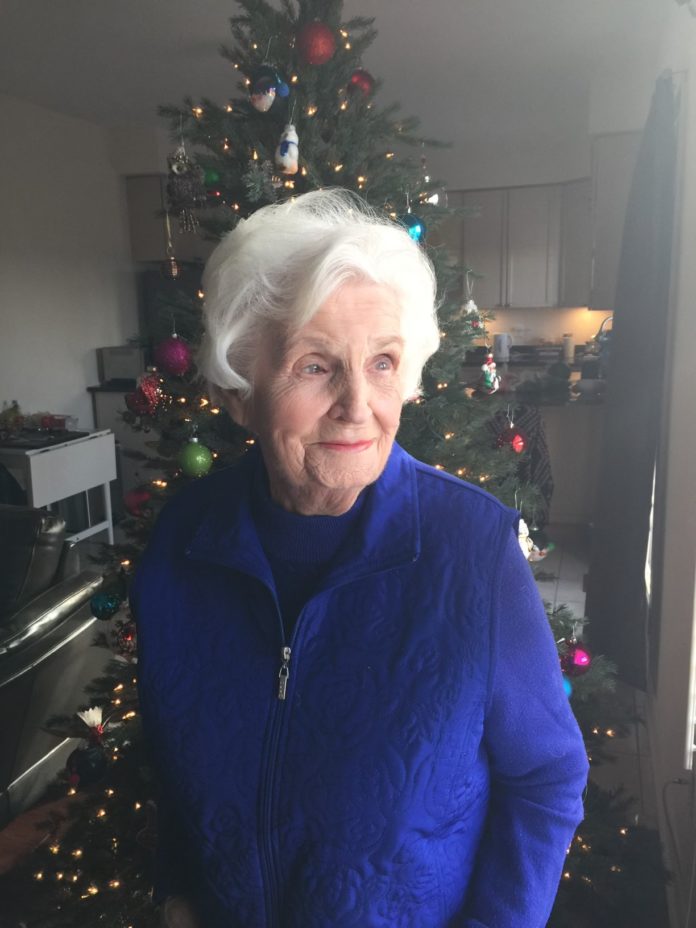AUNDECK OMNI KANING – For most of their lives, eight elders from across Mnidoo Mnising have watched as their stories are interpreted by others (if at all), but over the past two weeks they have taken control of their own narratives thanks to an innovative United Nations (UN) program celebrating the UN’s Decade of Heathy Aging.
Approached by Marlene Bovenmars of Insight Share and Gregor Sneddon, executive director of HelpCanada, in collaboration with Public Health Agency of Canada each of the eight elders agreed to take part in the program, despite most of them expressing some trepidation about engaging with the technology.
The elders soon found their concerns to be largely groundless, as with the support of Ms. Bovenmars, Mr. Sneddon and the InsightShare tech support crew, they were soon tucked into the process of creating storyboards, learning about framing and a host of other techniques of visual storytelling.
The in-person screening scheduled to be held at the Four Directions Complex in Aundeck Omni Kaning was cancelled due to the recent COVID-19 outbreaks in a number of Island communities, but it was swiftly transitioned to an online format via Zoom.
Mr. Sneddon and Ms. Bovenmars introduced viewers to the project before the participants stepped up to the camera, now veteran film stars in their own right, to talk about what the project had meant to them.
“We are grateful for the local partnership of the Noojmowin-Teg Health Centre which is providing space and logistical support for the project as well as the Traditional Advisory Council for their blessing, support and assistance,” said Mr. Sneddon. “As the world looks to a future where one in five people will be over the age of 60, the United Nations and world leaders need to hear the voice of older people as they look to create the infrastructure and policy to support our aging populations. This project is intended to be one way to hear that voice.”
During the project the elders learned to be participatory videographers, learning to use technology to make a video, while creating the story and content they wish to tell. “Canada was one of six countries selected by the UN for this project and the video they created will be shared around the world.”
“I got the call from Tish (Manitowabi) asking if I would like to learn to do video,” said Louie Francis. “I agreed and then a call came from Ottawa. I was delighted to do this; I learned a lot.”
Elder Urban Mejaki said that he was hesitant at first, describing himself as not being very tech savvy, but by the second day “it wasn’t too bad and by the third day I accepted to finish the program.”
Henry Mandamin said the process “was a lot of fun.” He spoke about the importance of keeping mind and body fit and how the workshop taught him a lot. He expressed his gratitude to co-ordinator Madeline Bovenmars for keeping everyone in good spirits throughout the process.
Elder Leona Nahwegahbo noted the prudence of listening to First Nations elders. “It’s our time to shine,” she said.
As part of their video, the elders supplied several recommendations to the UN (and by extension the world). In the film, elders can be seen tending their gardens and taking part in numerous activities related to those recommendations.
Those recommendations included to view aging as something positive; stay physically and mentally active; seek new knowledge and skills; build relationships with young people; find support to process your past experiences and be at peace; look for ways to contribute to community; spend time with elders and encourage them to make themselves heard; be compassionate and listen to understand the unique needs of each older person; open elders’ councils for all elders to listen in and present issues.
Their recommendations also included practical suggestions for creating or adapting homes that are more accessible before it’s urgent; offering sufficient home services so that people can age at home; review housing standards and codes and correct safety hazards; build safe independent homes with live-on-site caregivers; invest in gardens and activities for people in nursing homes.
Among the recommendations were to look out for each other and be precautious because of the COVID-19 pandemic; provide regular check-ins on elders who live by themselves; and that nursing homes provide excursions and trips.
Among the practical support recommendations were to fund more service hours for personal support workers; assist older community members with daily needs; train family caregivers to provide nutritious and appropriate meals; and to provide transportation for older family members; and include older people in planning and decision making.
The elders also advised that older people should be trained to develop skills with essential technology; train older people to identify and properly respond to criminal activity and ‘scammers,’ and host workshops for end-of-life planning.
Specific to Indigenous elders, the group called for support to elders in passing on their knowledge and skills; preserving traditional arts and crafts; keeping Anishinabemowin alive by using it in daily life; and include traditional practices and language in service provision and attend to elders spiritual life.
The environment was high on the elders’ list of concerns, including learning about climate change and reduce consumption and taking a stand to fight all types of environmental destruction.
Forgiveness and peace featured highly among the elders’ recommendations, adding that it is important to prevent and address all forms of violence and abuse; to forgive ourselves and others and to be free of negativity; and to support residential school survivors to process their experiences and thank them for shining light on the past.
The elders suggested that everyone should follow the seven Grand Father’s Teachings (humility—dbaadendiziwin, represented by the wolf; bravery—aakwa’ode’ewin, bravery is represented by the bear; honesty—gwekwaadziwin, honesty is represented by either the raven or the sabe; wisdom—nbwaakaawin; truth—debwewin; respect—mnaadendimowin; and love—zaagidwin) and to support communities to address separation.
The film created by the elders will now move into a post-production process to prepare it for a global release sometime in the next year.





